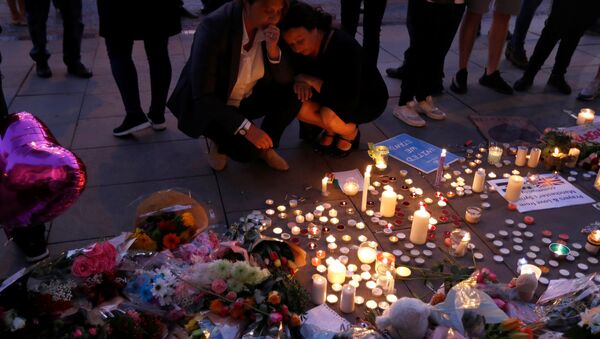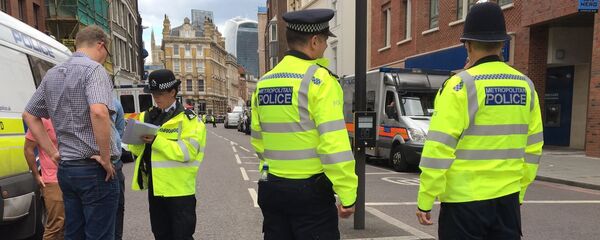The British intelligence agency MI5 had been tipped off about Salman Abedi, the man who carried out the Manchester attack on May 22. He has been put on the list of "subjects of interest," which included about 20,000 people, says the official security review by David Anderson QC, a senior UK barrister, published on the government's website.
According to the report, the intelligence agency scheduled a meeting to discuss whether Abedi "merited further examination" on May 31 — as we now know, a week too late.
"On two separate occasions in the months prior to the attack, intelligence was received by MI5 whose significance was not fully appreciated at the time. It was assessed at the time not to be [related to] terrorism but to possible non-nefarious activity or to criminality on the part of Salman Abedi," Anderson said, according to the Guardian.
In other words, the intelligence agency viewed him as a gang member, not a terrorist.
"In retrospect, the intelligence can be seen to have been highly relevant to the planned attack," he added.
According to the report, MI5, which faced a surge of terror activity in 2017 that was even stronger than in 2016, has done most things right. Yet "it is conceivable that the Manchester attack in particular might have been averted had the cards fallen differently," Anderson writes.
"The reason why the judgements can be tough is that they are made against a background of imperfect information, and yet frequently require staff to choose which of a number of current and potentially deadly threats is more deserving of scarce investigative resources," Anderson writes in defense of the counterintelligence agency.
However, according to his own reports, even being given a high priority does not ensure a possible terrorist is apprehended in time.
According to the Guardian's report, Khuram Butt, one of the three truck attackers on London Bridge in June, had been given a high priority and was already under investigation by MI5. Intelligence suspected he was involved in planning an attack.
Despite that, he managed to conspire with two other assailants and commit the deadly attack that took the lives of eight people.
Anderson points out that people behind the Westminster and Finsbury Park attacks could not have been stopped, even with hindsight. According to his review, some attackers "are always likely to emerge and strike opportunistically with readily available weapons."
Despite the government's attempts to reform the counterintelligence services to make them more efficient, counterterrorism policing faces 7 percent budget cuts, The Guardian notes. The police chiefs are ringing the alarm, saying neighbourhood policing, crucial to getting intelligence, is going to be harmed by the financial squeeze.
"Real-term cuts to the police budget must stop and increases are given to reflect the greater workload and the growing threat," Manchester Mayor Andy Burnham said.



